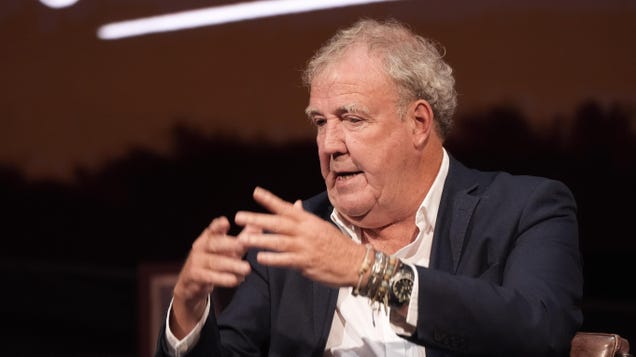The Decline of Modern Cars: Jeremy Clarkson’s Controversial Perspective
The automotive world is no stranger to strong opinions, and few figures are as polarizing as Jeremy Clarkson. Known for his candid and often controversial takes, Clarkson recently stirred the pot once again by declaring that modern cars are “all shit now.” This statement, made during a watch party for the final episode of “The Grand Tour,” has ignited a debate among car enthusiasts and industry experts alike. What lies behind this assertion, and what does it mean for the future of automotive design and consumer preferences?
Understanding Clarkson’s Critique of Modern Cars
Clarkson’s critique is rooted in a broader sentiment shared by many automotive enthusiasts: a perceived decline in the driving experience offered by contemporary vehicles. He argues that modern cars have become overly complicated, laden with technology that detracts from the joy of driving. This perspective is not entirely unfounded. A 2022 study by J.D. Power found that while consumer satisfaction with vehicle technology has increased, many drivers feel overwhelmed by the sheer volume of features, often leading to frustration rather than enjoyment.
Moreover, Clarkson’s assertion touches on the emotional connection many drivers feel with older models. Classic cars often evoke nostalgia and a sense of authenticity that some argue is missing in today’s vehicles. For instance, the simplicity of a vintage Ford Mustang or a classic Porsche 911 offers a raw driving experience that modern cars, with their advanced safety systems and automated features, can sometimes lack.
The Impact of Technology on Driving Experience
While technology has undeniably improved safety and efficiency in modern vehicles, it has also raised concerns about the diminishing role of the driver. Advanced driver-assistance systems (ADAS), such as lane-keeping assist and adaptive cruise control, are designed to enhance safety but can create a disconnect between the driver and the vehicle. A 2023 survey by the National Highway Traffic Safety Administration (NHTSA) revealed that 60% of drivers feel less engaged when using these technologies, which could lead to a less fulfilling driving experience.
Clarkson’s comments resonate with a segment of the population that values the tactile and visceral aspects of driving. The sensation of steering a car through a winding road, feeling the engine’s roar, and experiencing the thrill of acceleration are elements that some believe are being overshadowed by an overreliance on technology.
Consumer Preferences: A Shift Towards Simplicity?
As consumers become increasingly aware of the complexities of modern vehicles, there is a growing trend toward simplicity and authenticity. Brands like Mazda have embraced this philosophy, focusing on creating cars that prioritize the driving experience over excessive technology. The Mazda MX-5 Miata, for example, is celebrated for its lightweight design and engaging handling, appealing to those who seek a more connected driving experience.
Additionally, the rise of the electric vehicle (EV) market presents a unique challenge and opportunity. While EVs often come equipped with advanced technology, many manufacturers are also emphasizing the driving experience. Tesla, for instance, has garnered attention not just for its technological innovations but also for the exhilarating performance of its vehicles. This dual focus on technology and driving pleasure may represent a new direction for the automotive industry.
The Future of Automotive Design: Balancing Technology and Experience
As the automotive landscape continues to evolve, the challenge for manufacturers will be to strike a balance between technological advancement and the fundamental joy of driving. Clarkson’s critique serves as a reminder that while innovation is essential, it should not come at the expense of the driving experience that many enthusiasts cherish.
Manufacturers may need to consider consumer feedback more closely, ensuring that new technologies enhance rather than detract from the driving experience. This could involve designing user-friendly interfaces, simplifying controls, and providing options for drivers who prefer a more traditional driving experience.
In conclusion, Jeremy Clarkson’s assertion that modern cars are “all shit now” reflects a broader conversation about the future of automotive design. As technology continues to advance, the challenge will be to maintain the emotional connection that drivers have with their vehicles. By prioritizing the driving experience alongside innovation, the automotive industry can cater to both tech-savvy consumers and those who long for the simplicity and authenticity of classic cars.

